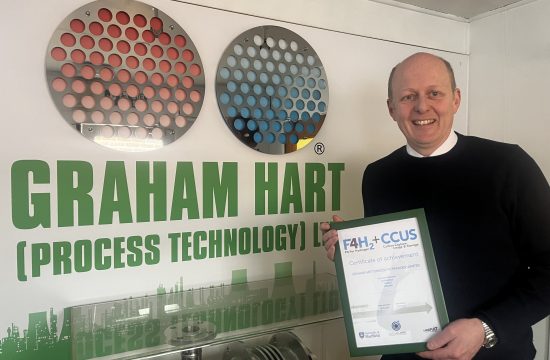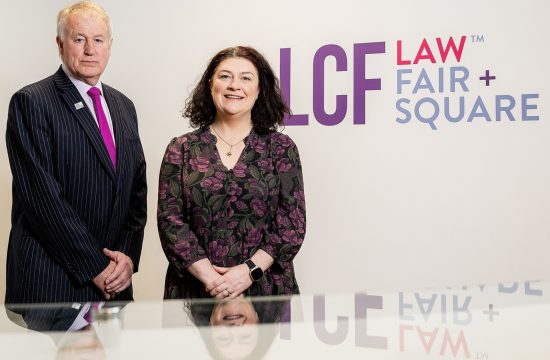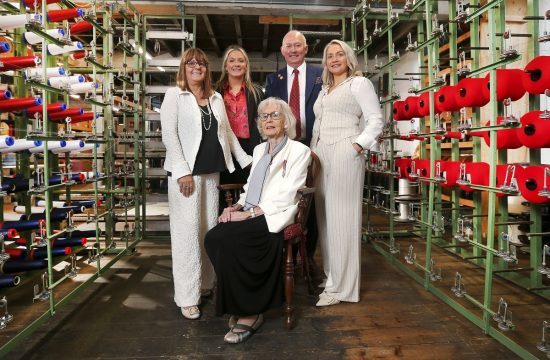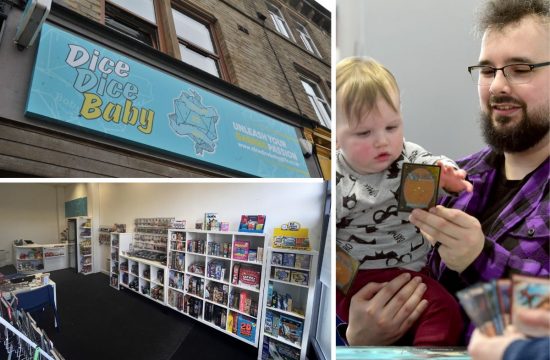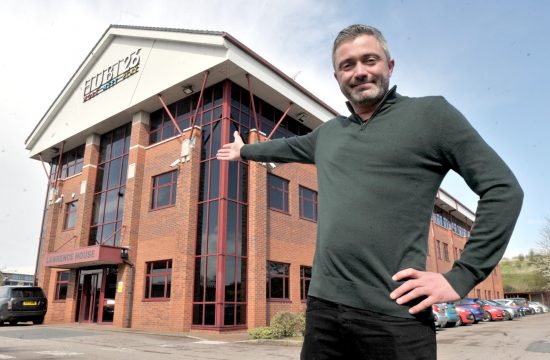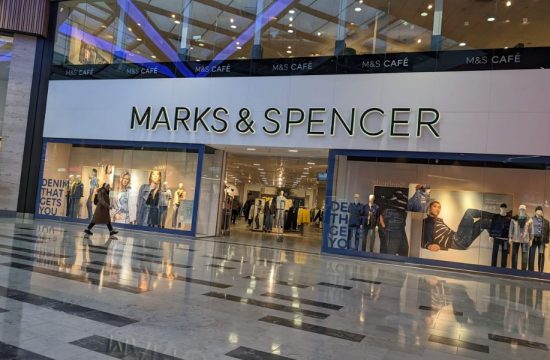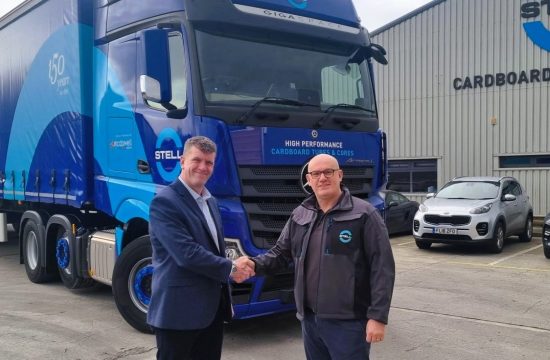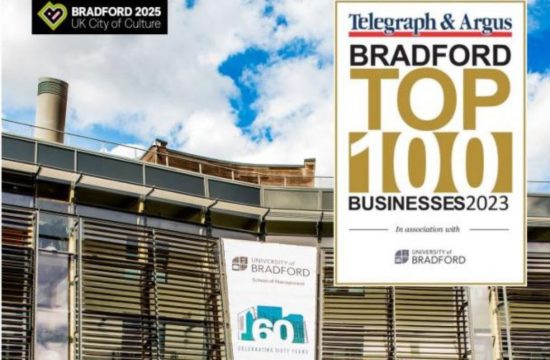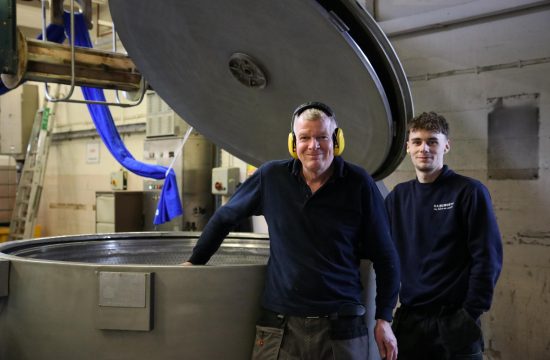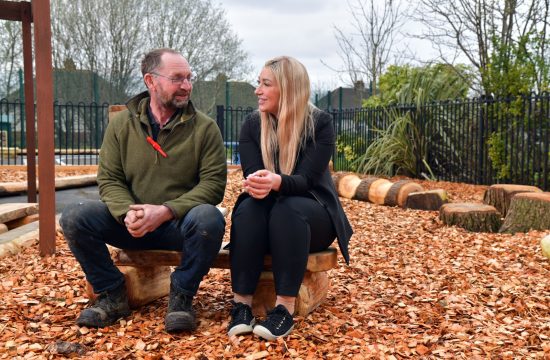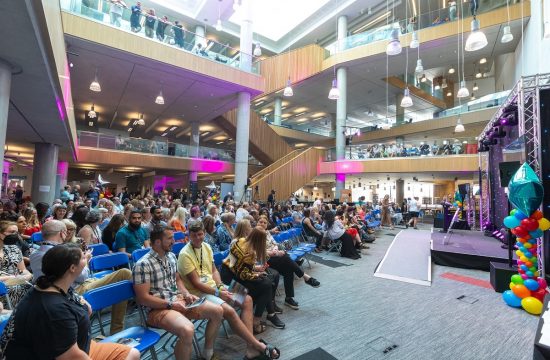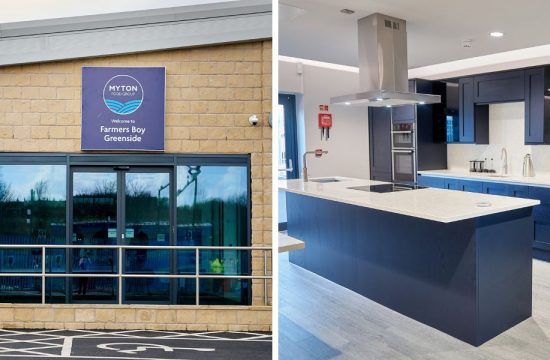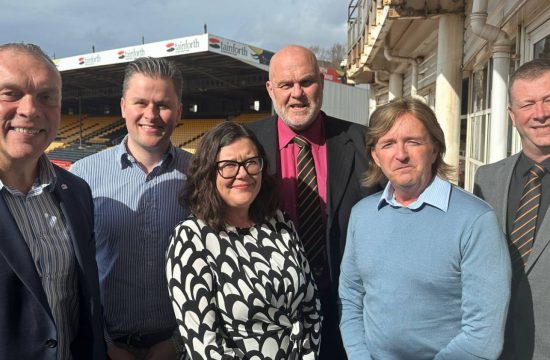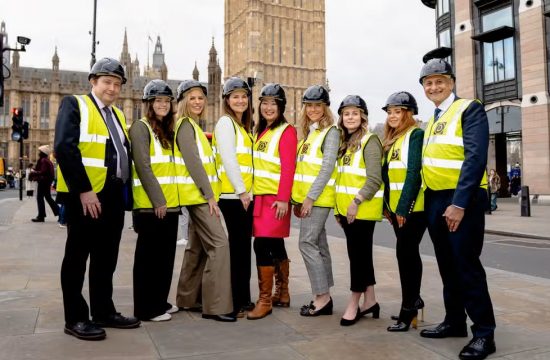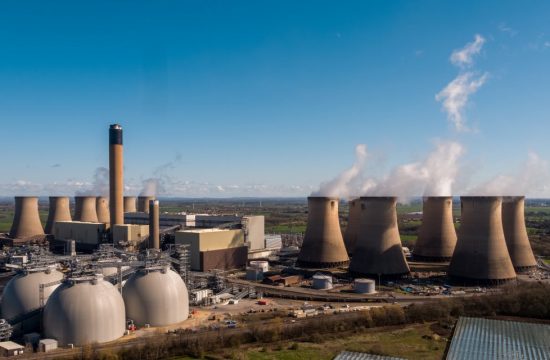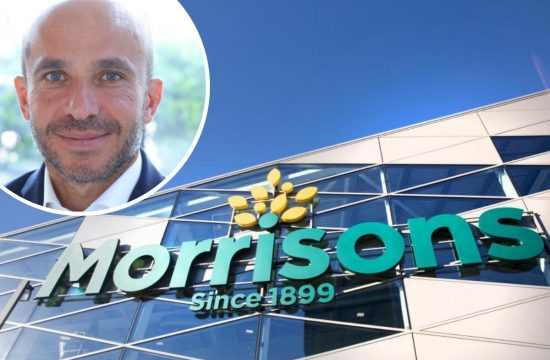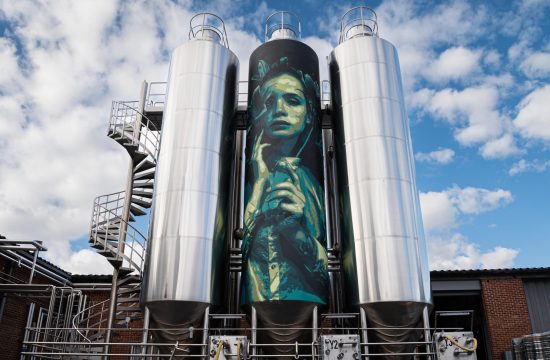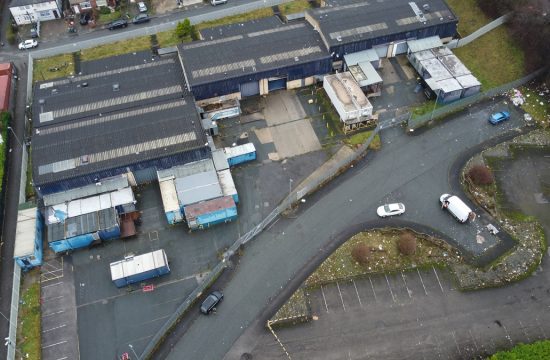Regenex is on a mission to salvage waste fabrics from being sent to landfill sites.
Two years ago, three men came up with a concept to try and stem the huge amount of textile waste being sent to landfill sites.
For David Midgley, Paul Hamilton, and Matthew Whitehead, the amount of linen being simply thrown away was staggering.
So they formed Regenex with the idea of creating a new cleaning method to treat the fabric and ensure it can stay in use much longer.
Their innovative business model is a prime example of the growing number of companies looking at ways of recycling and re-using materials rather than just throwing them into landfill.
Many homes now have milk delivered in a reusable bottle daily, we are all being encouraged more and more to use our plastic bags again and again, coffee shops are trying to encourage people to use their own cups, and stores specialising in reusable containers and packaging for their products are springing up.
National and international organisations and regional and local authorities are working hard to encourage a reduction in the huge amount waste both businesses and domestic properties generate, with the Leeds City Region, which includes Bradford, setting itself a target of becoming one of the world’s first zero carbon energy economies.
For businesses, the ethical argument is compelling – almost all of us now accept we are throwing too much away and building up huge problems for future generations.
But there are also sound commercial reasons as well, with customers becoming increasingly savvy of environmental issues, and demanding goods and services that fit in with those demands.
For Regenex, the last two years, along with £500,000 investment, has shown what can be achieved.
The three founders, with a wealth of textiles knowledge between them, were only too aware of the fact that only between 15 and 20 per cent of textiles disposed of in Europe are collected for reuse or recycling.
“The carbon impact of this throwaway mentality is vast, not to mention extremely costly,” said company managing director David
DAVID, MANAGING DIRECTOR
“THE CARBON IMPACT OF THIS THROWAWAY MENTALITY IS VAST, NOT TO MENTION EXTREMELY COSTLY”
“Unfortunately, the UK lags behind many of our European neighbours when it comes to the treatment of ‘waste’ textiles. The amount of commercial linen and workwear that we’re sending to landfill per year is staggering,” he said.
“So is the environmental impact, and so is the business cost. This has to stop. That’s exactly why we’ve spent the last two years innovating, because environmentally-conscience consumers are starting to push back!”
The company set about devising a new cleaning method that they believed could shift more complex stains from a range of linen fabrics.
By the end of last year, the firm had handled 300 tonnes of condemned linen and apparel from the hospitality, healthcare and workwear sectors, which would otherwise have been considered to have reached its ‘end of life’, and managed to reclaim 74 per cent of it and reinserted into the commercial laundry industry’s pool stock, to continue its useful economic life.
Now a fully-commercial operation employing 12 people and with capacity to handle at least 15 tonnes of linen per week, Regenex is looking for more clients, and are event prepared to offer a 400kg free trial to commercial laundry businesses to demonstrate the effectiveness of the new system.
David said efforts were already being made to try and tackle the problem, but he said they came at it with a fresh pair of eyes.
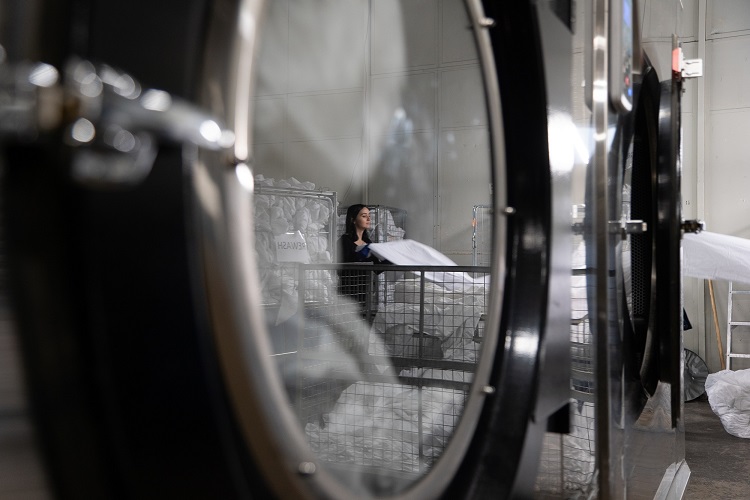
“We hope that by challenging the status quo we can complement existing efforts – enabling the UK to “love its linen for longer.”
He also stressed that they further minimised the net environmental damage of the process, with steam and hot water from the Regenex plant used by neighbouring textiles facilities.
And linen that cannot be successfully cleaned they use an overdyeing process that enables towels, napkins and other fabrics to be reused as a darker coloured item – still avoiding landfill.
“It seems fitting that Regenex is based in Bradford,” continued David. “We’re conveniently located in the heart of the country and close to the major motorway network, which makes it easy to work with clients throughout the UK.
“The city also has a rich textiles heritage, so it’s great to know that our operation is helping to preserve the lifespan of materials that have been so costly to produce.”
On a regional level, the Leeds City Region believes it could be on its way to becoming one of the world’s first zero carbon energy economies as a result of a new Energy Strategy adopted by the West Yorkshire Combined Authority and Leeds City Region Enterprise Partnership (LEP).
The Combined Authority and LEP want Leeds City Region to be the first UK city region to meet the Paris Climate Agreement targets.
A spokesman said that meeting the targets would take the City Region a long way towards partners’ ultimate goal of becoming a zero-carbon energy economy, as well as adding £11billion to the region’s economy and create 100,000 extra jobs through investment in clean energy.
He said reducing carbon emissions and growing the region’s green economy has been a focus of City Region partners for the past decade and initiatives led by the LEP and Combined Authority have contributed to an overall 38% reduction in carbon emissions in the City Region since 2005, compared to 27% nationally.
These initiatives include support for businesses to reduce their waste, water and energy bills, measures to improve the energy efficiency of homes and combat fuel poverty, investment in local, low carbon energy schemes such as district heat networks and the introduction of low emission buses in partnership with local bus operators.
A new Energy Accelerator – the only one of its kind in the UK – will launch in the New Year, providing technical expertise to bring forward and identify funding for low carbon energy projects.
Roger Marsh OBE, Chair of the LEP and of the NP11 group of local enterprise partnerships across the North, said: “Leeds City Region’s long history of energy generation puts us in pole position to lead the UK’s transition to a zero carbon economy. Our region still generates 12% of all UK electricity, a third of which now comes from low carbon or renewable sources.
“We are already leading by example as a City Region through the clean growth initiatives we’ve been delivering over a number of years, which are making businesses more productive and households better off as well as contributing to reductions in emissions.
“The third anniversary of the Paris Climate Agreement is, however, a reminder that we still have a long way to go if we are to leave the planet in a better place for future generations. I am delighted, therefore, by the level of ambition City Region partners have shown in embracing our zero carbon goals.
“It is only through concerted, collective action that we will be able to deliver on this ambition, so I look forward to taking our plans to the next stage in collaboration with partners across Yorkshire and the North of England.”





